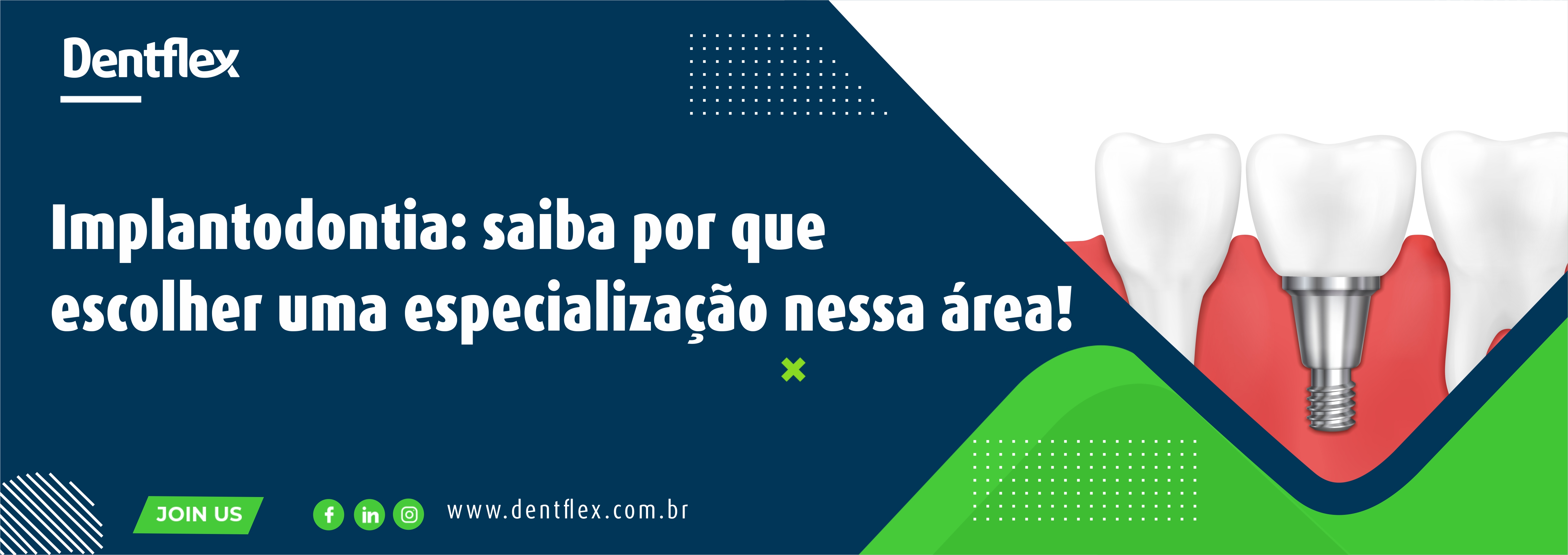Implantology: Know why choose a specialization in this area!

Implantology is the third most active specialty in Brazil. Tooth loss has several factors. Some are linked to accidents, others to poor sanitation. And this can affect the patient's life in relation to their health and their emotional condition. Therefore, there is the area of implant dentistry.
The benefits achieved by implant dentistry surpass any value: it returns the quality of the smile to the patient and increases their self-esteem. The advancement of medicine and the popularization of the area have helped to reduce treatment costs.
Implantology is an orthodontic specialization that consists of attaching to the mandible or maxilla an implant that will replace the lost tooth. Thus, it will work as a support and will be buttoned from above, and can be fixed or removable.
We must always take into account that expenses depend on the complexity of each case, the number of implants installed in the surgery and the choice of materials used in making the prosthesis.
Installing implants goes through the following steps:
- Consultation to establish the treatment plan;
- Return with complementary exams;
- Moldings;
- Implant installation;
- Post-operative return.
Care for the new tooth is the same. But we emphasize that the guidelines of specialists must be followed to the letter, as they may have special considerations for the postoperative period.
Specialization in Implantology
Currently, according to the Federal Council of Dentistry (CFO), Brazil has 14,722 implant dentists, making it the third most active specialty in the country. If you already have a degree in dentistry and want to move into the field of implant dentistry, the first step is to search for a good specialization. Look for course recommendations and directions.
There are thousands of courses, which can have different segments, such as for the scientific area and for a master's degree. Compare and recognize which has more to do with what you want to follow. Before hitting the hammer, do some research to see if the course is accredited by the CFO. The duration of specialization in implant dentistry is on average two years, with classes only on a few days a week. Once you are specialized, make your registration with the regional and federal council. In this way, you will give greater credibility to your work, conveying greater confidence to patients.
The more you know the area in depth, the more training you will have.
Find out what the main knowledge of implant dentistry is:
- identify problems in the bone structures of the jaw and jaw;
- diagnose changes in the mucous membranes of the mouth and tooth structures;
- know techniques and laboratory procedures related to the types of prosthesis;
- master the surgical techniques used for implants;
- maintenance of implants;
- make bone grafts, gums and dental implants.
Invest in technical quality and knowledge in implant dentistry
As in any profession, keeping up-to-date on techniques and materials is very important because it also gives greater credibility to the work. Even more in the medical field, where there is constant invention of drugs and procedures. After all, patient satisfaction is what matters most to a dentist. Therefore, it is necessary to invest in quality materials, which help a lot in surgeries that demand greater precision, for example.
Making partnerships can be a great differential. She can assist with pricing and updating materials. Also, finding a great lab also helps give credibility to the work. It needs to be of quality and punctual, so that it does not compromise the progress of the process. The market periodically renews itself. Having intraoral scanners and having good dental radiology equipment present a unique quality to the treatment of implant dentistry.
Source: Simpatio. Available at: https://simpatio.com.br/implantodontia/. Access on: 08/18/2021.
